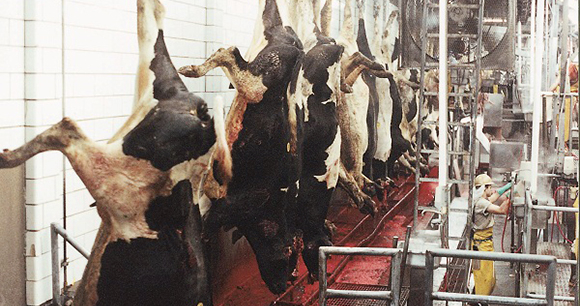
1958
The federal Humane Methods of Slaughter Act (P.L. 85-765) is signed into law by President Dwight D. Eisenhower on August 27. The Act requires all meat companies selling to the US government to provide stunning by mechanical, electrical, or chemical means prior to the killing of cattle, calves, horses, mules, sheep, swine, and other livestock, except in the case of slaughter for religious or ritual purposes. Stunning must be accomplished in a manner that is rapid and effective before the animal is shackled, hoisted, thrown, cast, or cut. (While the law refers to “other livestock,” poultry is not specifically included.)
1978
The Humane Methods of Slaughter Act is expanded by an amendment requiring that cattle, sheep, swine, goats, horses, mules, and other equines (poultry are not included) imported into the United States for meat be slaughtered humanely. Foreign packers exporting to this country must meet standards equal to those required of US meat companies. USDA inspectors are empowered to stop the slaughtering line on the spot if they observe any animal of a covered species being slaughtered or handled in connection with slaughter in a manner not consistent with the law. Slaughter may not recommence until deficiencies, whether of equipment or of abuses by personnel, are corrected.
2002
The 2002 Farm Bill (P.L. 107-171) includes a resolution dictating that the Humane Methods of Slaughter Act of 1958 should be fully enforced, preventing the needless suffering of animals. It further calls on the Secretary of Agriculture to track violations of the Act and “report the results and relevant trends annually to the US Congress.”
Find out about enforcement of the law and the welfare of farmed animals at slaughter.